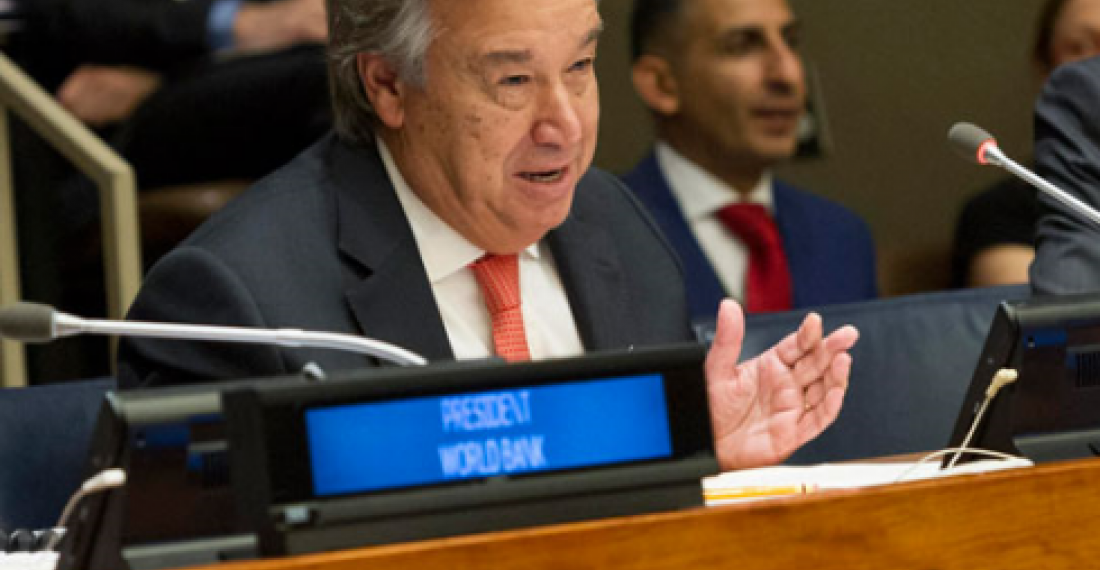The United Nations has added its voice in support of a proposed Armenia-Azerbaijan presidential summit to help resolve the Karabakh conflict.
A statement issued by the United Nations on Tuesday (26 September) says that UN Secretary-General, Antonio Guterres, welcomes the recent meetings in New York on the margins of the UN General Assembly between the Co-Chairs of the Organization for Security and Co-operation in Europe (OSCE) Minsk Group and the Foreign Ministers of Armenia and Azerbaijan. He supports the work of the Co-Chairs to de-escalate tensions and reinvigorate the negotiation process." The statement adds that "the Secretary-General hopes that the planned summit meeting at the Presidential level would contribute to enhancing confidence and fostering the necessary political will among the parties to find peaceful compromise solutions to the key outstanding issues."
There has recently been increased interest in the United Nations structures on the Karabakh conflict and its resolution, although the primary role to mediate a solution of the conflict remains with the Organisation for Security and Co-operation in Europe (OSCE), and its Minsk Process.
On Saturday, the Foreign Ministers of Armenia and Azerbaijan met in New York, on the margins of the UN General Assembly. A statement issued afterwards by the mediators said that the Foreign Ministers had expressed their commitment to work with the co-Chairmen of the OSCE Minsk Group dealing with the Nagorno-Karabakh conflict to prepare for a successful summit between the presidents of their two countries in the near future.
source: commonspace.eu with the press office of the United Nations Secretary General
photo: UN Secretary-General Antonio Guterres







